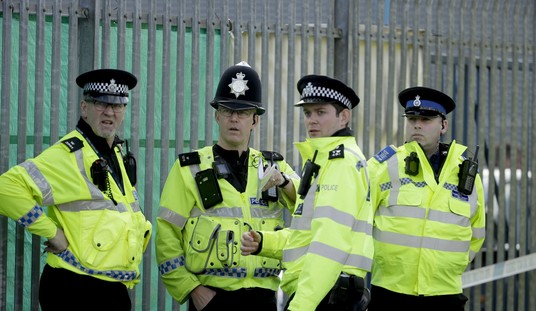Israel stepped up its offensive in Gaza today, broadening its target range and hitting all along the enclave. The latest increase in activity came after Hamas increased the rate and range of its rocket attacks:
Israel ramped up its offensive on the Hamas-run Gaza Strip on Wednesday, bombing more than 100 targets overnight as Palestinian militants fired rockets deep into Israeli territory, striking far from the seaside enclave and reaching toward major Israeli cities and the country’s coastal high-tech corridor.
Since the Israeli offensive, dubbed Operation Protective Edge, began Tuesday, Israel has attacked more than 400 sites in Gaza, killing at least 24 people and wounding hundreds of others.
Wednesday’s strikes came after Palestinian militants from Gaza fired more than 160 rockets at Israel, including one that reached the northern Israeli city of Hadera, some 70 miles from Gaza, for the first time. There were no reports of injuries from the rocket attacks, with most falling in open fields or intercepted by Israel.
The Israeli military says the Hamas rocket that struck Hadera was an M-302 class rocket, similar to ones found aboard a freighter that the Israelis intercepted in the Red Sea in March. The ship was ferrying a load of Iranian arms to Gaza when it was stopped, the Israelis said. They said Hamas militants have dozens of rockets capable of striking deeper into Israel than ever before.
They are finding less time and room to use them now. In one sign that the Israeli offensive has made its desired impact, the number of Hamas rocket launches has dropped dramatically today:
The army said it attacked more than 160 sites in Gaza early Wednesday, including 118 concealed rocket-launching sites, six Hamas compounds, 10 militant command centers, weapons storage facilities and 10 tunnels used for militant activity and to ferry supplies in from Egypt. Only four rockets were fired from Gaza toward Israel overnight, the army said, a significant decline from the large number that hit Israeli cities the night before, setting off air raid sirens in Jerusalem, Tel Aviv and elsewhere.
NBC calls this the heaviest fighting in years, although the Israelis conducted a similar offensive in November 2012:
What exactly is meant by asking whether this will lead to war? This obviously is war, and has been for years. Hamas fires rockets into Israel on a constant basis, and even as late as Monday morning could have avoided a military response by ending the rocket attacks. What we are seeing now is certainly an escalation in the war, but only because Israel got tired of having rockets land on their civilian population areas. Israel is always on a “war footing,” because war is a constant with Hamas.
For a depressing look into that reality, the New York Times reports on the strategy Israel employs in fighting Hamas. They have no way to win a war outright against Gaza, and they know it. The only option they have is “cutting the grass” occasionally to reduce Hamas’ ability to do damage — and that only temporarily:
Until Hamas opts for peace and a permanent two-state solution that recognizes Israel’s right to exist, a state of war will exist between the two. That’s definitional on Hamas’ part, which means Israel has no choice in the matter. Having them become a partner in the Palestinian Authority doesn’t improve matters but extends the war. At some point, Abbas and the West Bank have to decide whether they want their own state more than they want Hamas as a partner, because until Hamas accepts those conditions, the two are mutually exclusive outcomes.








Join the conversation as a VIP Member